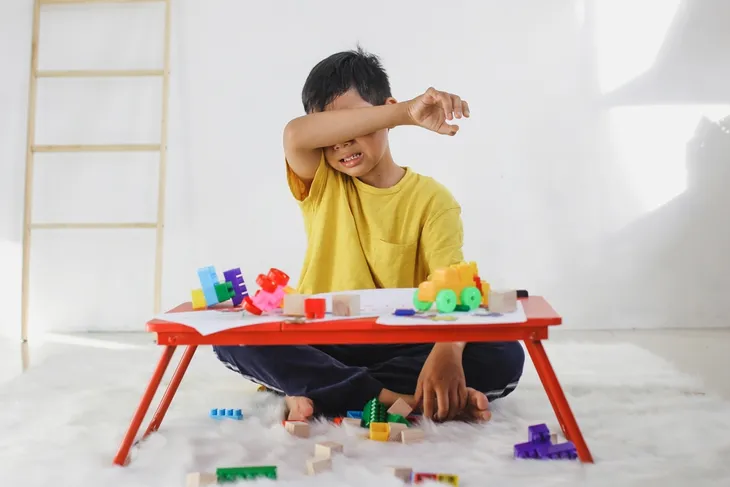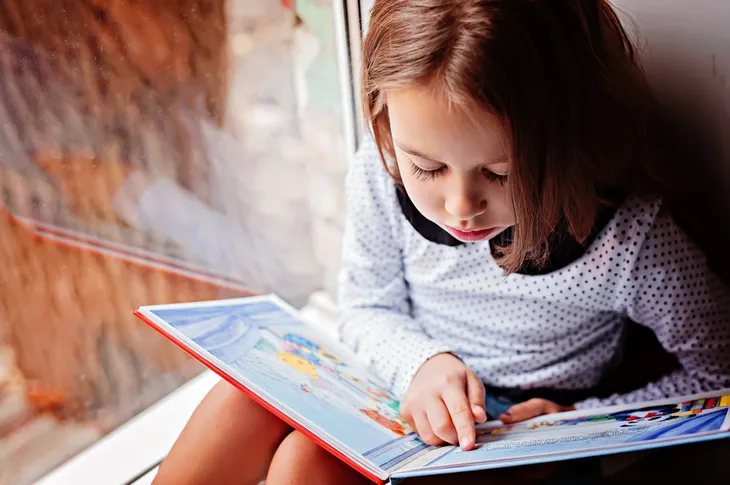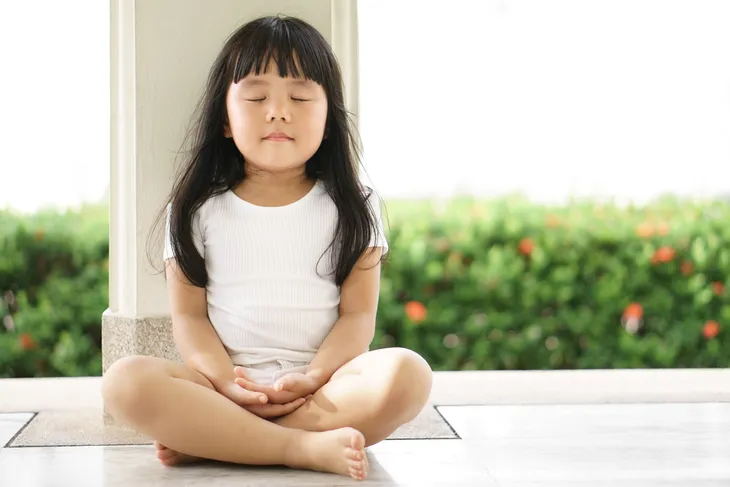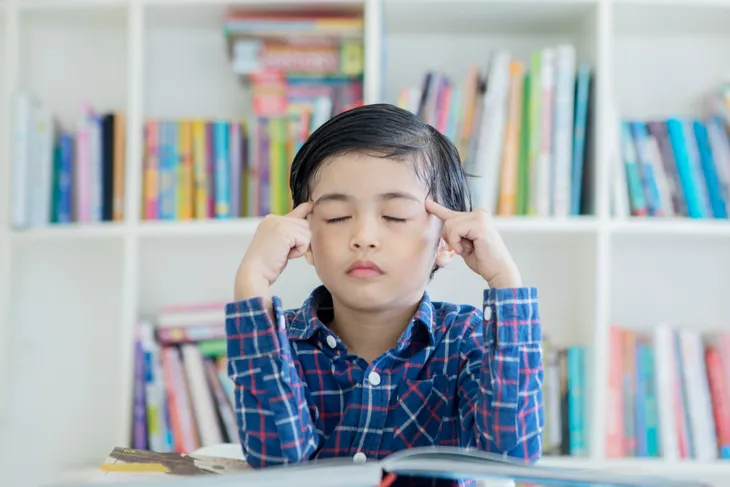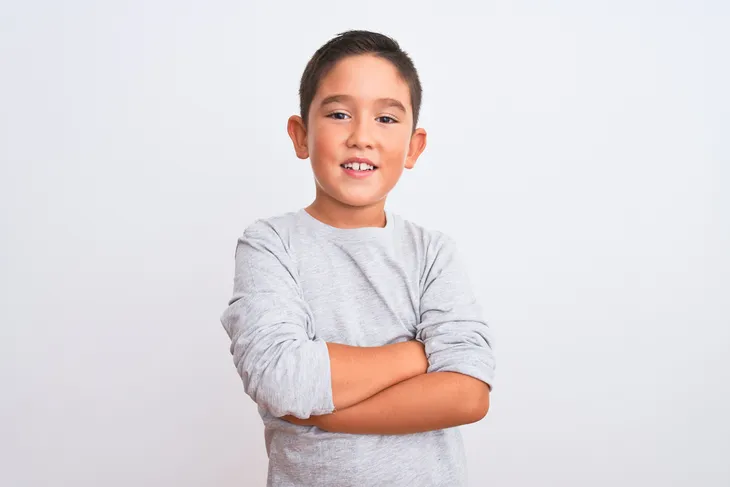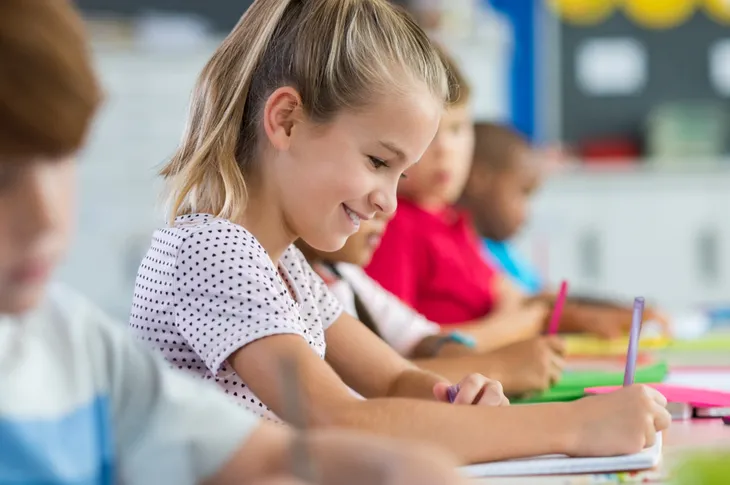It doesn’t matter if you’re 35-, 68-, 15-, or 3-years old, meditation is a valuable tool that can help you find peace and balance. For children, this is extremely important, especially in this day and age where children are pressured to grow up so quickly. It’s been proven that an increasing number of children are showing elevated signs of anxiety and stress.
So how do you teach your kids to meditate and learn to love it? As with anything new, you can’t force them to be interested, however, you can make it a fun experience. You may think your restless 5-year old will never learn to focus or sit still for longer than 3-seconds, but may be surprised. Here are 8 reasons why you should teach your kids to meditate…
1. Meditation vs. Medication
The Journal of the American Academy of Child and Adolescent Psychiatry recently published a report that showed an estimated 2-million more children in the U.S. were diagnosed with attention deficit/hyperactivity disorder (ADHD) between 2003 and 2012. Most of these children are diagnosed before the age of 6-years old.
Many of these children diagnosed with ADHD are prescribed medication to help improve their attention span and lessen their hyperactivity. Meditation can have similar effects as medication. In fact, a study done by the National Therapies Research Unit at the Royal Hospital for Women in Australia showed that 50-percent of children who began meditating, either reduced or stopped taking their medication altogether.
2. Support Emotional Development
We all get frustrated when we don’t get our way or we’re challenged, but the difference with children is that they haven’t learnt patience yet. Patience is a virtue that is becoming more and more difficult to learn because technology has increased our need for immediate gratification.
Meditation can allow children to find some emotional stability by learning to balance their body and mind. This is especially important when they are frustrated, scared or anxious. Learning to look within can give them strength and patience.
3. Learning to Focus
A child’s mind naturally jumps from one thought to another, especially when technology encourages them to think and respond quickly. One minute their coloring, the next they want to ride a scooter, and the next they’re playing video games.
Most children today are spoiled rotten. They have toys and gadgets galore, but they’re constantly looking for the next cool thing. This is because they haven’t learned how to focus. Meditation can help them focus their attention. This is especially important for school-aged children who need to focus on their studies.
4. Learning to Listen
In a world where we are constantly bombarded by noise, kids can get overstimulated very quickly. Whether it’s the noise from the TV, a loud classroom, a busy household, noise can sometimes be deafening. Today, many children have never been exposed to total silence.
When we block out the noise from our surroundings, we are able to focus and listen. Listening is a skill that seems to getting lost with younger generations. You may think it’s a daunting task to get your toddler to be quiet for even a few minutes, but if you make a game of it, you can teach them to be still and listen to the world around them. Have them sit quietly with their eyes closed and tell them to listen to what they hear. Then, when the time is up, have them tell you what they heard.
5. Learning to De-Stress At Any Age
Stress affects all of us, regardless of age. If you remember your own childhood, chances are you had a certain amount of stress. Whether it was stress caused by anxiety of the first day of school, preparing for a test or exam, or family issues at home, kids can often be stressed, even though they may not know it.
Learning how to meditate can help calm these anxieties by calming the mind and relaxing the body. If the mind is at ease, then the physical symptoms subside and children are able to focus and deal with frustrating situations that may arise. Childhood is supposed to be a carefree time where a child learns and grows, and is inspired by the world around them. Meditation can allow them to deal with the negative impact of stress as they progress through childhood and into adulthood.
6. Building Confidence
As children, we had to learn confidence. The “think I can” attitude was encouraged by parents, siblings, teachers, and other mentors in our lives. Confidence isn’t normally something that comes naturally and as a child, one single event can be all-encompassing.
To help your child reach their full potential, confidence is key. They will need to believe in themselves and believe that they can overcome any obstacle. To do this, meditation can teach them to focus internally, regroup and focus on the task at hand. Along with your support as a parent, your child can be successful at anything they do in life.
7. Learning to Breath
Breathing comes naturally, but deep breathing is entirely different. Breath is connected to our life-force energy, otherwise known as prana. As we breath, every cell in our body is oxygenated. Learning to breathe deeply is vital at any age, but when your child is having a temper tantrum or they’ve fallen off their bike, breathing techniques can help them calm down and relax.
When your child is feeling anxious, their breathing naturally changes. They tend to take short, shallow breaths that can lead them to hyperventilate. This type of breathing can make a situation worse. Not only will deep breathing help reduce their anxiety, it will give them a sense of control because they will learn to calm themselves down.
8. Hard-Wire the Brain
Meditation throughout childhood can help hard-wire a child’s brain to become kinder and to focus. Research done by neuroscientist Richard Davidson showed that the brain’s elasticity can be shaped by experience and behavior and that children who meditate actually hard-wire their brains to increase their resilience to stress.
Davidson studied about 200 elementary students at four different schools who used breathing techniques to improve their ability to focus on their work. His research, including brain imaging studies, showed that it is possible to cultivate the mind to change brain functions, especially in children. Not only will this benefit their well-being as a child, these positive changes will stay with them as they become adults.


